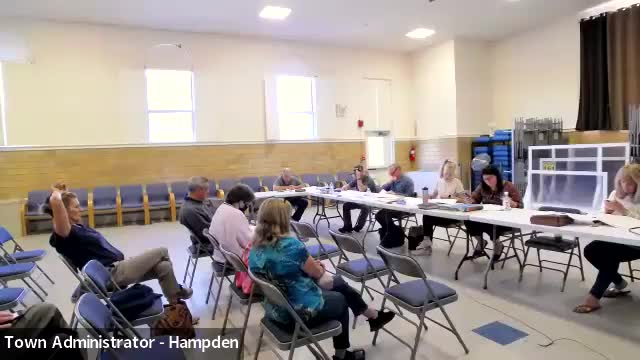Hampden planning board recommends battery energy storage bylaw for May 12 town meeting
Get AI-powered insights, summaries, and transcripts
Subscribe
Summary
The Town of Hampden Planning Board voted to recommend a proposed bylaw on battery energy storage systems for the May 12 town meeting after discussing setbacks, fire-protection limits and legal review.
The Town of Hampden Planning Board voted to recommend a proposed bylaw regulating battery energy storage systems for consideration at the May 12 town meeting.
Board members said the draft was updated to increase setback distances and that town counsel can provide a legal memo if the board requests one. Board members discussed fire department limits on extinguishing battery fires and minor editorial and definition fixes before moving the recommendation to town meeting.
Board members said the draft replaces an inconsistent setback reference, raising the required setback to 75 feet where an earlier draft had said 50 feet. During discussion a member asked whether firefighters extinguish battery-system fires with water; a planning board member summarized conversations with firefighters that water is used mainly to keep units flooded until the battery’s stored energy dissipates, not to instantly put the fire out. The board also corrected a typographical error in the draft language and confirmed the acronym “DBH” should read “diameter at breast height” where it applies to tree specifications.
Town counsel was cited in the discussion as available to prepare a legal-position memo and to advise on submission procedures. Board members said copies of the bylaw would be distributed at town meeting and that, if the warrant article passes, the board’s next step would be to forward the enacted language to the Massachusetts attorney general for review. The board scheduled a follow-up meeting for May 28 to finalize the planning board’s report and any letter to the attorney general.
A board member made a motion to recommend the proposed battery energy storage bylaw for the May 12 town meeting; another member seconded, and the board voted in favor. The motion was procedural: it sends the draft to town meeting for a public vote and does not itself adopt any regulatory changes.
Discussion items that did not become formal direction included whether the bylaw should define additional technical terms and whether more prescriptive fire-suppression language was feasible given local fire-department practices. The board noted that any required approvals from state or federal agencies, or details governed by building code or fire code, would remain separate from the town bylaw and could limit local options.
The planning board’s action was limited to recommending the draft to the town meeting; any change in local law will depend on the town meeting vote and subsequent attorney general review.
